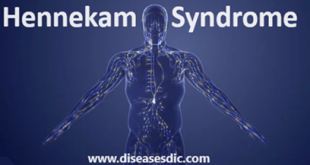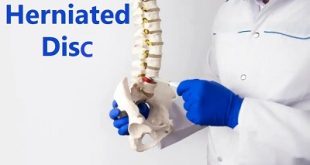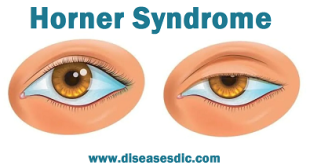Definition
Heartburn is a sensation of burning in the chest caused by stomach acid backing up into the esophagus (food pipe). The burning is usually in the central part of the chest, just behind the sternum (breast bone). The burning can worsen or can be brought on by lying flat or on the right side. Pregnancy tends to aggravate heartburn.
Many people experience heartburn and there are a large number of over-the-counter (OTC) medications and home remedies available to treat heartburn. In most cases you will not need to see a health-care professional, except if the symptoms are frequent (several times a week), severe or increasing in severity. If heartburn is severe or the pain is accompanied with additional symptoms such as shortness of breath, radiation into your arms or neck, you will need to see a doctor to distinguish these symptoms from more serious medical conditions such as a heart attack.
GERD (Gastroesophageal reflux disease) can be considered a chronic and more serious form of reflux with heartburn as the major symptom; however, there may be other symptoms or no symptoms at all. If your heartburn symptoms occur more than twice a week you should see your health-care professional to make sure no serious problems are present.
Risk factors
Risk Factors for heartburn and GERD Include:
- Dietary choices- acidic or fatty meals, caffeine, eating close to bedtime, and large meals
- Hiatal hernia (a condition in which part of the stomach moves above the diaphragm, which is the muscle that separates the chest and abdominal cavities)
- Obesity
- Pregnancy
- Scleroderma
- Smoking or alcohol use
Causes of Heartburn
Heartburn occurs when food and stomach juices back up (reflux) into the esophagus, which is the tube that leads from the throat to the stomach. This process is called gastroesophageal reflux. Common causes of reflux include:
- Incomplete closing of the valve (the lower esophageal sphincter, or LES) between the esophagus and the stomach.
- Foods and drinks, such as chocolate, peppermint, fried foods, fatty foods, sugars, coffee, carbonated drinks, and alcohol. After heartburn occurs, the backflow of stomach juices can cause the esophagus to become sensitive to other foods, such as citrus fruits, tomatoes, spicy foods, garlic, and onions. Eating these foods may cause more heartburn.
- Pressure on the stomach caused by obesity, frequent bending over and lifting, tight clothes, straining with bowel movements, vigorous exercise, and pregnancy.
- Smoking and use of other tobacco products.
- Prescription and nonprescription medicines, such as aspirin, ibuprofen, prednisone, iron, potassium, antihistamines, and sleeping pills.
- A hiatal hernia, which occurs when a small portion of the stomach pushes upward through the diaphragm, which is the muscle that separates the lungs from the abdomen.
- Stress, which can increase the amount of acid your stomach makes and cause your stomach to empty more slowly.
Symptoms of Heartburn
Heartburn is caused by the backward movement of stomach contents into the esophagus, which may result in a number of symptoms. The symptoms can vary in intensity among individuals.
Common symptoms of heartburn
You may experience heartburn symptoms daily or just once in a while. At times any of these common symptoms can be severe:
- Abdominal burning
- Abdominal pain
- Burning feeling in the upper chest
- Indigestion
- Pain in the upper chest
In some cases, symptoms of heartburn can be a sign of a heart attack or other serious condition. Seek immediate medical care if you, or someone you are with, have any of these life-threatening symptoms including:
- Chest pain, chest tightness, chest pressure, palpitations
- Heartburn symptoms that persist despite use of usual remedies
- Radiating pain down your shoulder and arm
- Respiratory or breathing problems such as shortness of breath, difficulty breathing, labored breathing, wheezing, not breathing, or choking
- Vomiting blood or black material (resembling coffee grounds)
Heartburn complications
If the afore-mentioned distinct attributes of heartburn gradually disappear within a day or two, there is no cause for concern.
Underlying Serious Ailments:
In some circumstances, the affected person displays difficulty in breathing, with excruciating chest pain, inability to swallow, constant nausea or vomiting, sudden weight loss and numerous recurring episodes of heartburn within a week. It is then advised to consult a doctor at once, to identify the trigger behind these symptoms.
GERD (Gastroesophageal Reflux Disease):
Incessant heartburn that takes place more than twice a week progresses onto GERD. This sickness requires prescription drugs and sometimes even surgery, to mend the injured oesophagus, restore its routine functioning and prevent precancerous alterations called Barrett’s oesophagus, from developing in the body.
Diagnosis and test
If your heartburn goes on for a long time, it may be a sign of a more serious condition known as gastroesophageal reflux disease (GERD). Your doctor may be able to tell if GERD is the cause of your heartburn from your symptoms. But to tell how serious it is, they may do several tests, including:
X-ray: You’ll drink a solution called a barium suspension that coats the lining of your upper GI (gastrointestinal) tract — your esophagus, stomach, and upper small intestine. This coating lets doctors see defects that could mean a problem in your digestive system.
Endoscopy: A small camera on a flexible tube is put down your throat to give a view of your upper GI tract.
Ambulatory acid probe test (esophageal pH monitoring): An acid monitor is put into your esophagus and connected to a small computer that you can wear on a belt or shoulder strap. It measures when stomach acid backs up into your esophagus and for how long.
Esophageal motility testing (esophageal manometry): A catheter is put into your esophagus and measures pressure and movement.
Treatment and medications
Non-Surgical Treatment for Heartburn
Most people can manage the discomfort of heartburn with lifestyle changes, weight loss and medications, including Proton Pump Inhibitors, or PPIs. PPIs reduce the amount of stomach acid made by glands in the lining of the stomach. They include over-the-counter medications, as well as omeprazole. While common, these medications are not without risk. Short-term use can result in headache, diarrhea, constipation and abdominal pain. Recent studies point to long-term effects, such as increased risk of pneumonia and bone fractures.
Surgical Treatment for Heartburn
Sometimes a surgical approach may be necessary to alleviate symptoms. If surgery is required, Summa Health patients have access to the latest technology and surgical techniques. Surgical options include:
Laparoscopic Nissen Fundoplication
During Nissen fundoplication, the surgeon wraps the top of the stomach around the lower esophagus. This reinforces the lower esophageal muscle or sphincter, making it less likely that acid will back up into the esophagus. The procedure typically lasts up to one and a half hours. Patients are started on clear liquids the next morning and discharged in the afternoon.
LINX® Reflux Management System
LINX is a small flexible ring of magnets that opens to allow food and liquid down, then closes to prevent stomach contents from moving up. Unlike other procedures, LINX requires no alteration to the stomach, reduces gas and bloating and preserves the ability to belch and vomit. While designed to be a lifelong treatment, LINX can be removed using a minimally invasive procedure that generally lasts less than an hour. Moreover, it doesn’t limit your future treatment options.
Several over-the-counter medications can treat heartburn, including:
- Antacids- Antacids may provide fast relief by neutralizing stomach acid. They do not, however, heal a damaged esophagus or treat any underlying causes of heartburn.
- H-2-receptor antagonists (H2RAs)- These medications also reduce stomach acid, but do not provide relief as quickly as antacids. They can, however, provide relief for a longer amount of time.
- Proton pump inhibitors such as Prevacid 24HR, Nexium 24HR, and Prilosec OTC can reduce stomach acid as well.
In rare cases, surgery may be considered when all other treatments have failed to reduce symptoms.
Prevention of Heartburn
The following lifestyle changes can help you to avoid heartburn:
Lose weight/maintain a healthy weight – Excess weight places pressure on the stomach causing stomach acid to back up into the oesophagus
Quit smoking – Smoking impairs the normal functioning of the oesophageal sphincter
Diet control – Avoid foods that trigger your heartburn and reduce the amount of food you eat
Avoid lying down after a meal – Wait at least three hours after eating before lying down or going to bed
Raise the head of your bed by placing blocks under the feet at the head of your bed or insert a wedge between your mattress and the bed’s base so that your body is elevated from the waist up.
 Diseases Treatments Dictionary This is complete solution to read all diseases treatments Which covers Prevention, Causes, Symptoms, Medical Terms, Drugs, Prescription, Natural Remedies with cures and Treatments. Most of the common diseases were listed in names, split with categories.
Diseases Treatments Dictionary This is complete solution to read all diseases treatments Which covers Prevention, Causes, Symptoms, Medical Terms, Drugs, Prescription, Natural Remedies with cures and Treatments. Most of the common diseases were listed in names, split with categories.








what is barium suspension?
Barium sulfate suspension, often simply called barium, is a contrast agent used during X-rays. Specifically it is used to improve visualization of the gastrointestinal tract (esophagus, stomach, intestines) on plain X-ray or computed tomography. It is taken by mouth or used rectally.
Doctor good morning, I having a serious heartburn now. please what will I do?
To alleviate serious heartburn, maintain an upright posture, avoid lying down after meals, and sip on water. Chewing gum may stimulate saliva production, while over-the-counter antacids can offer relief—limit trigger foods like spicy or acidic items. If symptoms persist or are severe, seek medical attention promptly for proper diagnosis and treatment, especially if it might be related to conditions like Gastroesophageal Reflux Disease.
how can I manage my weight
– Exercise often: Studies prove that people with high activity levels are more likely to maintain their weight loss than others who are not as active
– Eat a healthy breakfast daily
– Stay hydrated
– Eat whole foods
– Eat responsibly and mindfully
– Plan your meals ahead of time
– Get cookbooks
– Decrease screen time
what is the home treatment for this case
Can prolonged fasting
trigger heartburn
Fasting can also cause heartburn; lack of food leads to a reduction in stomach acid, which digests food and destroys bacteria. But smelling food or even thinking about it during fasting periods can trigger the brain into telling the stomach to produce more acid, leading to heartburn.